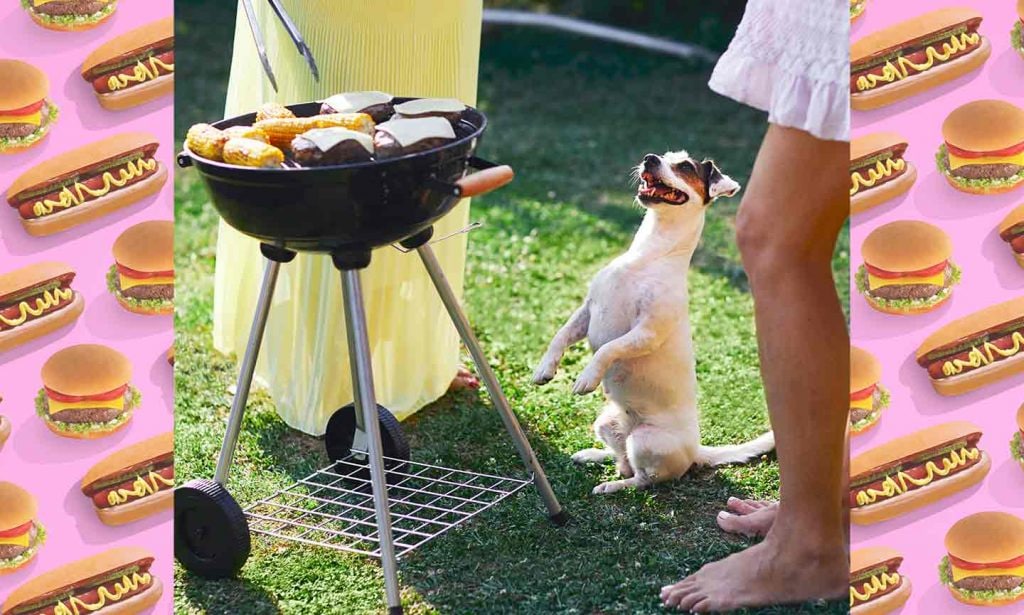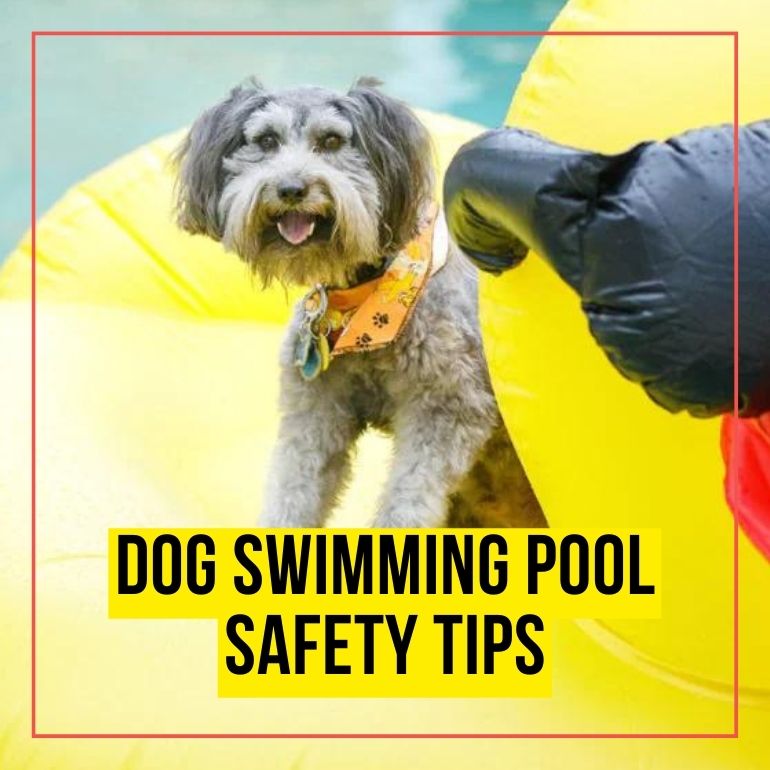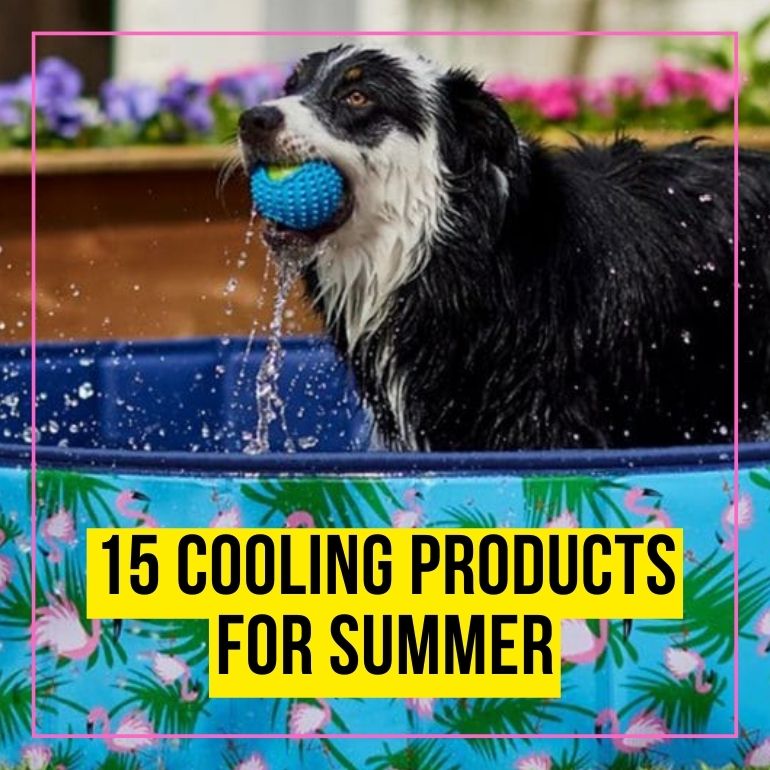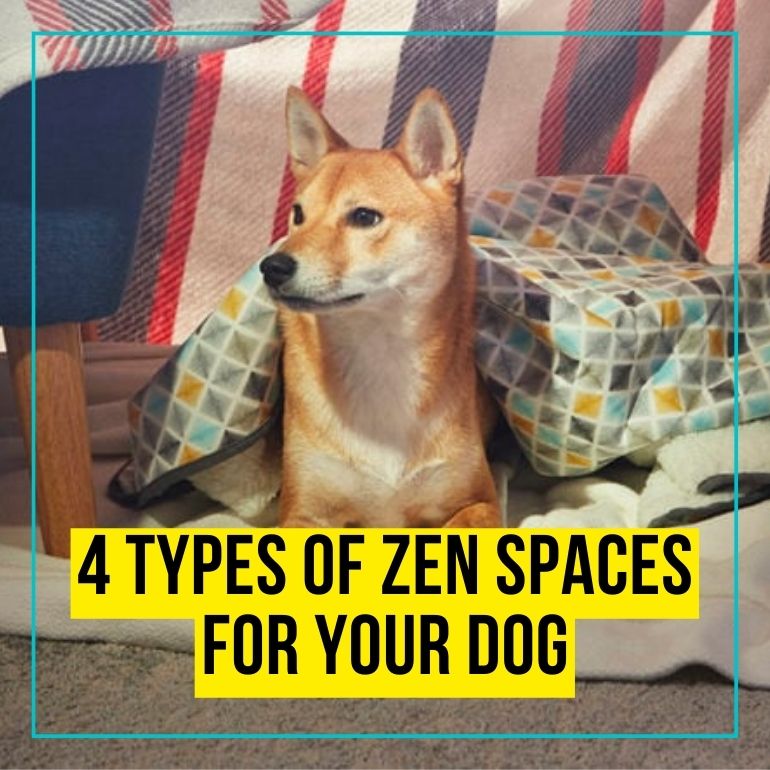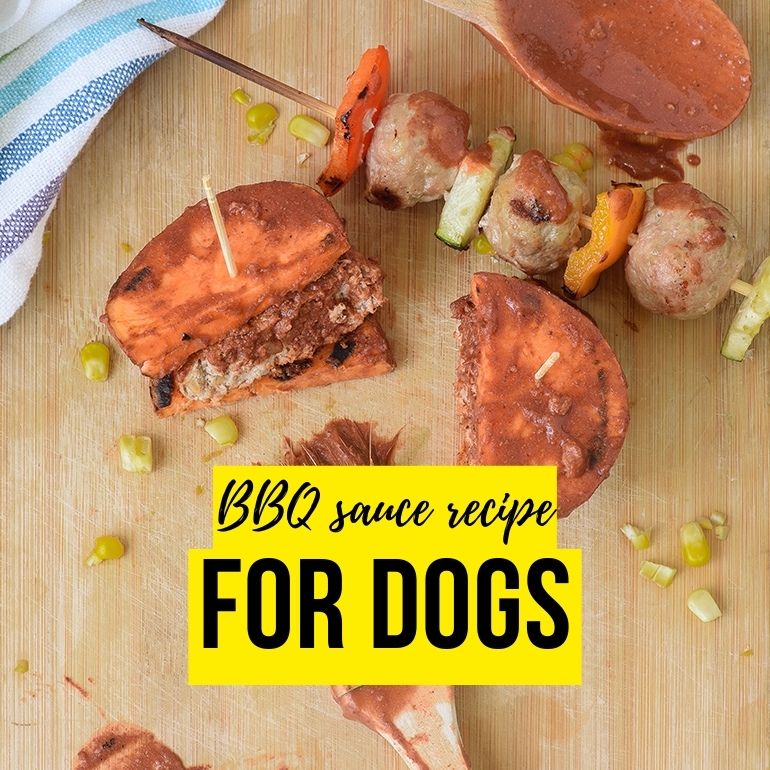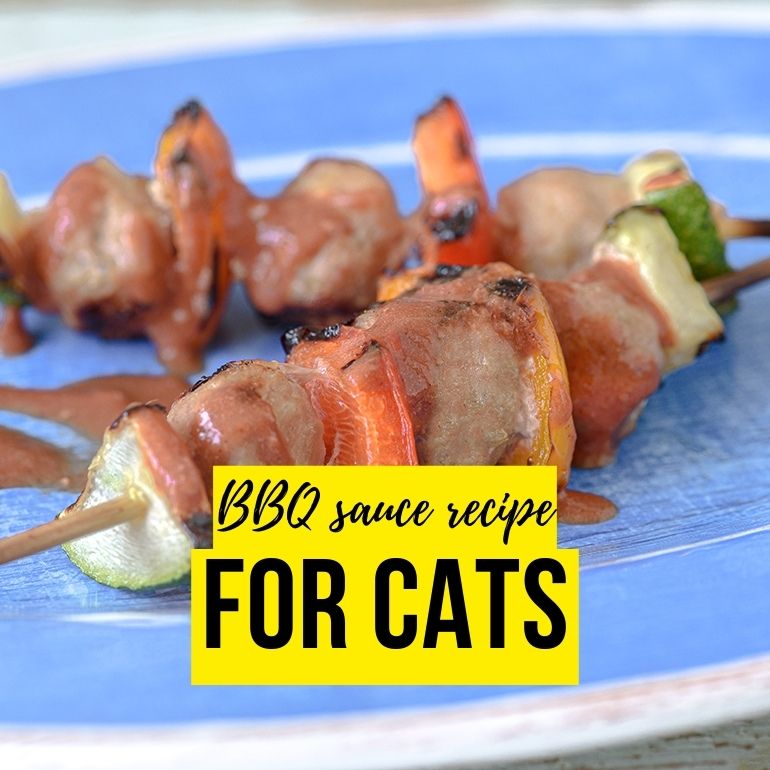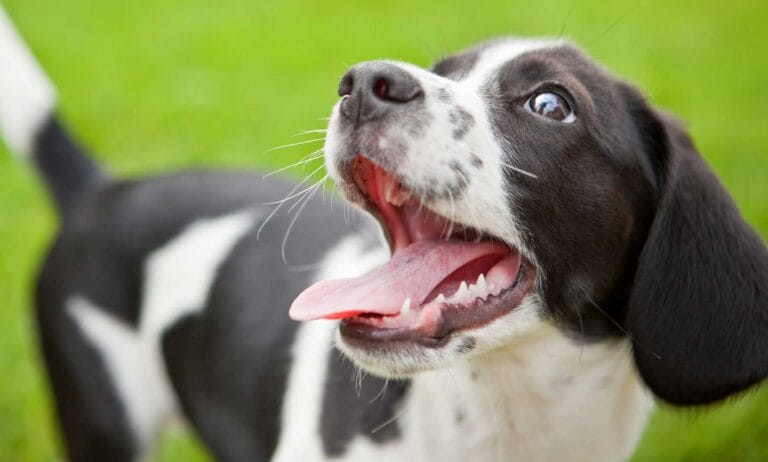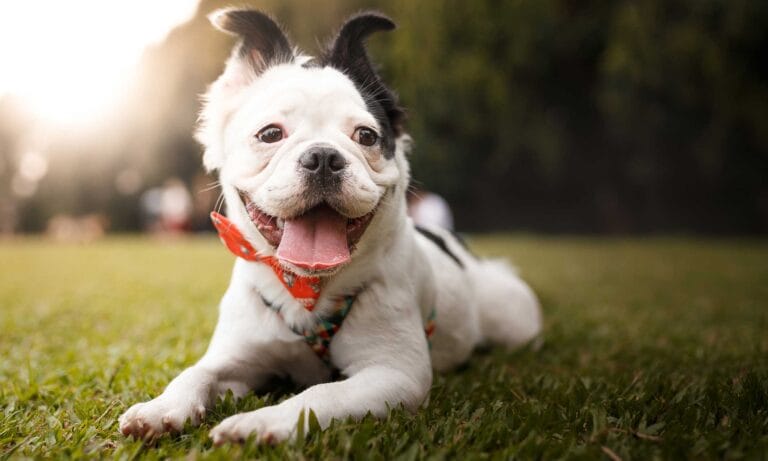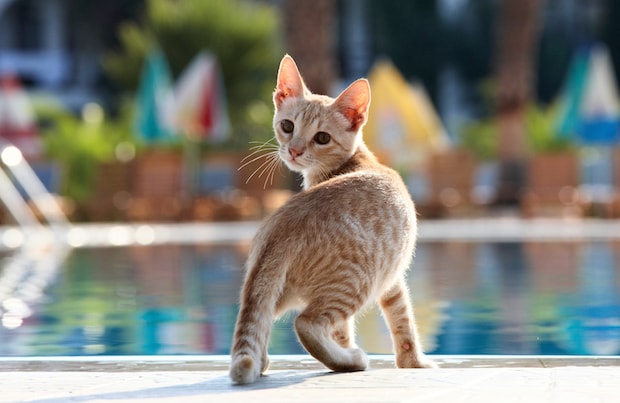The sun’s shining, the pool floats are inflated, and the grill’s heating up. And as we brush up on our cornhole skills, it’s also the perfect time to freshen up on BBQ safety—especially for those of us pet parents who have a dog or two zooming in and out of the house and getting dangerously close to the grill.
For starters, it’s important to keep pets at least three feet away from the grill area the next time you throw a cookout, according to the National Fire Protection Association (NFPA). But that’s far from the only important pet safety tip to remember the next time you fire up the grill. We spoke with experts to ensure your summertime backyard BBQ ends with fun, not first aid...
Keep Pets Away from the Grill and Pool
First, the obvious one: Don’t let pets get near your hot grill. This is important for several reasons:
- It can be tempting for a dog or cat to smell the grilled meats and want to jump up for a taste. But that can easily lead to your pet getting burned or, if they actually sneak a taste, getting sick.
- In addition to unsafe foods (more on that below), pets can also get sick if they ingest too much grease or grill drippings at once. (It’s OK if your pet accidentally gets a lick or two!) The NFPA recommends that fat and grease buildup should be trapped below the grill and removed.
- Smoke can be irritating for pets, who can have sensitive airways. So, it’s important to not only keep pets far from the grill, but also not downwind of fumes. Have small pets and/or birds? It’s advised to keep their enclosure away from the barbeque and ensuing smoke.
- Grilling essentials, like charcoal, lighter fluid, matches, lighters, and wood or metal skewers used for kebabs, can be toxic if ingested. So, keep them out of reach from pets, and put them away when they’re not in use.
Here are some other common household items that are toxic to dogs and cats.
Lastly, have a pool? Watch your furry friends closely to ensure they don’t drink the pool water, as ingesting too much chlorine can cause irritation and vomiting. Get more pool safety tips here.
If Your Pet Gets Burned By a Grill
Understandably, your pet may be scared and in pain, so be sure to approach your pet with care and caution.
Next, carefully clean the burn area: “Rinse [the burn] immediately with cold water, cover the area with a light bandage to prevent the [animal] from licking [the area] and take the pet to an emergency vet,” Dr. Kevin Windsor, DVM, owner of Beverly Hills Veterinary Associates, tells PetMD.
Keep Pets Away from Common Toxic Foods
While grilling, it can be all too easy to leave human foods laying around unattended. But keep in mind many of the summer treats and snacks that we love can be dangerous for our pets to eat—especially foods that contain bones and sticks, like chicken wings and kabobs, which can be a choking hazard. Be sure to store or throw away leftovers in a secure, lidded bin that your pet can’t access.
The following summer BBQ foods can be toxic to pets:
- Uncooked meats: As with pet parents, pets can get sick with salmonella due to the harmful bacteria these uncooked meats could contain.
- Chicken wings and bone-in meat: As mentioned, chicken wings and bones can be a choking hazard.
- Fatty and fried foods: One hot dog for a 20-pound puppy is the caloric equivalent of three hamburgers for a person. "I think people get gratification out of their pet eating and being happy about it, but they don’t think about the long-term consequences," says Dr. James Darden, DVM, medical director at Blue River PetCare, which is based in Chicago, Illinois.
- Macadamia nuts: Consumption of Macadamia nuts can cause hind end weakness, tremors, lethargy, and hyperthermia in dogs.
- Salsa and guacamole: With salsa, the danger is in the onions and garlic used to make it, and when consumed in large enough quantities, these can cause serious damage to a dog’s red blood cells. As for guac, that pit when consumed can cause obstructions.
- BBQ sauce: BBQ sauce also contains onion and garlic, which are considered toxic and can cause anemia; and sugar and acidic or spicy ingredients, which can cause gastrointestinal upset, vomiting, diarrhea, dehydration and lack of appetite.
- Chocolate: The cocoa in chocolate contains two ingredients that are very harmful to pups: theobromine and caffeine.
- Grapes and raisins: Grapes and raisins are both highly toxic to dogs and can cause serious illness, even if a pup eats a small amount.
- Chips and pretzels: All that salt can lead to symptoms such as vomiting, tremors, diarrhea, fever, depression, and seizures.
- Alcohol: Alcohol can cause intoxication in our pets, and no pet parent wants that.
- Corn on the cob: “While they’re not poisonous, corn cobs are a big concern. They’re notorious for causing obstructions in the intestines, says Dr. Charlotte Flint, DVM, a senior consulting veterinarian in clinical toxicology at the Pet Poison Helpline.
- Xylitol-containing products: Xylitol is an artificial sweetener often found in peanut butter, sugar-free candy, and gum. If you buy sugar-free condiments, check the packaging/bottles for xylitol.
- Mayo: While a dog licking a small amount of mayonnaise off the floor is not toxic, dogs could get food poisoning from mayo if it’s been sitting in the sun. "Dogs can get food poisoning just like humans,” says Dr. Tina Wismer, medical director of the ASPCA’s animal poison control center. “[And] egg-based products can quickly go bad in the heat."
“Vomiting and diarrhea from eating food meant for people are both common issues pets face during barbecue season, when food items from the grill may be most accessible to them,” says Michael San Filippo, AVMA spokesperson.
If your pet has ingested any harmful foods, take them to a vet immediately.
Keep Pets Cool
Summer fun means plenty of summer sun, and too much sun and heat and humidity can be dangerous to both pet parents and their pets.
When the temps soar, keep pets cool and hydrated by keeping them inside and equipped with water. And if the pets are outside, make sure they have access to shade and water—but don’t leave them outside for extended periods of time as it could lead to overheating or heatstroke.
The first signs of overheating include:
- Excessive panting in dogs
- Noisy loud rapid breathing in dogs
- Lethargy and weakness
- The gums may feel dry and sticky (this is a sign of dehydration)
The following signs of overheating could lead to life-threatening conditions:
- Dark red gums (the normal color of your pet’s gums should be light pink)
- Vomiting blood
- Not acting like themselves (wobbly or walking “drunk”)
- Increased heart rate
- Small amounts to no urine
- Bloody or dark black tarry diarrhea
- Seizures if severe
- Collapse if severe
- Difficulty breathing
Keep Pets Calm and Contained
- For small pets such as rabbits and guinea pigs, who might be frightened by the noise of a large group of visitors, consider covering part of their cage, so they can hide away. Or, move their enclosure into a quieter part of the backyard or garden.
- For dogs, this might be their crate (if they’re crate-trained), or it could be a quiet bedroom.
Sadly, many dogs tend to run away from home because they’re so spooked by the loud sounds fireworks make (and all those other startling noises that throwing poppers, rockets, and the like create). An easy solution is to confine them to a safe space (like a bedroom or crate), ensure all home doors and gates are closed, and offer them treats during the show. You can also help your dog become more accustomed to and desensitized to the sounds by playing a recording of fireworks while giving them treats, leading up to the Fourth of July holiday.
“Ask your guests to help keep an eye on your pets to make sure they don’t accidently escape. Placing notes on exit doors and gates can help both you and your guests remain vigilant,” San Filippo says.
The American Veterinary Medical Association (AVMA) also recommends equipping your pets with identification tags with up-to-date information. If your pets aren’t already microchipped, talk with your vet about microchipping, which can greatly improve your chances of reuniting with your pet should they run away and become lost. Already microchipped? Great! Now, make sure your contact information in the microchip registry is up to date.

Keep Pets Safe from Debris
Keep Pets Happy
Look, pets can have a great time during your next outdoor barbecue, too! Yes, with all of the above tips in mind, you can help them do just that (because an emergency trip to the vet is fun for no one). But while you’re indulging in all of summer’s delicious drinks and treats, let your pet in on the fun, too, by treating your pooch to some yummy pet-safe foods and dog treats.
Here are some BBQ foods you can feed to cats and dogs, in small portions:
- Grilled steak and fish: must be boneless, fully cooked, and plain/unseasoned
- Grilled vegetables, including:
- Asparagus
- Broccoli
- Brussels Sprouts
- Carrots
- Cauliflower
- Celery
- Edamame
- Green Beans
- Peas
- Potatoes
- Sweet Potatoes
- Zucchini
- Seedless watermelon
- Cucumber
- Bananas
- Strawberries
Pet-Safe BBQ Sauce Recipes for Dogs and Cats
More Summer Fun:
Share:
